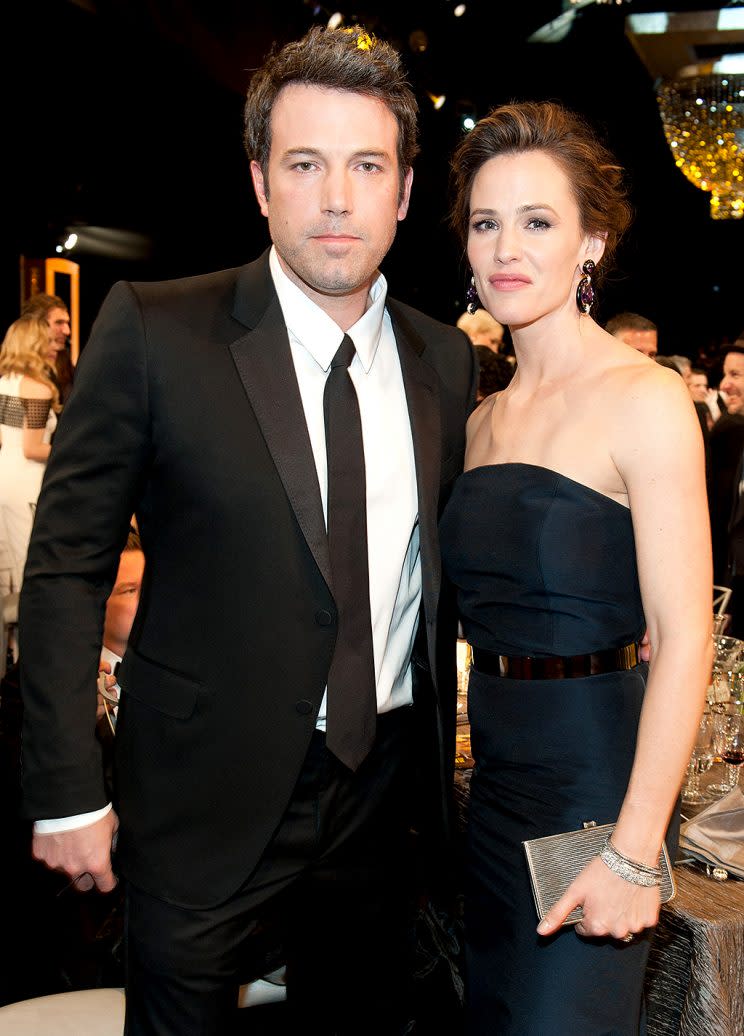Do We Demonize Female Celebs in Breakups?

Back in April, actress Olivia Munn and Green Bay Packers quarterback Aaron Rogers announced they were ending their three-year relationship, and almost immediately after, speculation surrounding the split began. The early verdict? Munn was “controlling” — a rumor that Rogers’s family floated as being the reason behind their family discord, but it picked up steam in the wake of their split. You could chalk it up to basic end-of-relationship gossip, or you could look at the bigger picture and see that when it comes to celebrity breakups, we tend to demonize the women.
Take, for example, Amber Heard. When she formally split from Johnny Depp and alleged abuse, she was branded a manipulative gold digger. Angelina Jolie was seen as similarly manipulative in the wake of her split with Brad Pitt. For example, she was painted as being horrible for not letting Pitt see their six children during an investigation into claims that Pitt was aggressive and possibly abusive with son Maddox during a plane incident. (He was later cleared of the child abuse allegations.)
Taylor Swift is constantly portrayed as not being able to keep a man whenever stories of her relationship endings surface; Scarlett Johansson was branded a bad mom for insisting on maintaining her career after her split from Romain Dauriac, and Halle Berry is routinely called crazy. In fact, the drama surrounding Berry’s splits has been so fevered that her exes David Justice and Eric Benét — who cheated on Berry, effectively ending their marriage — slammed the actress on Twitter when she split from Oliver Martinez. The New York Post went so far as to write a lengthy piece detailing how Berry is responsible for all her relationship failures.
Celebrity relationships end for all sorts of reasons — some are dramatic, some just run their course. So why are we so willing to identify the women as the problem when we don’t necessarily have all the facts?
“I think it starts with the notion that historically and as a society, we think that successful women are bitchy and have to ask for too much to compete in a man’s world,” says therapist Darby Fox. “In order to get to a certain level of celebrity, there are usually people who… I wouldn’t use the term ‘narcissistic disorder,’ but they do have a strong sense of self and accomplishment. They’re used to demanding and accomplishing things. And because that’s usually a given for men, we’ve given them a pass.”
Which may explain why men aren’t under the same microscope when it comes to splits. Certainly Jesse James got raked over the coals for his treatment of Sandra Bullock, and NBA star Carmelo Anthony is facing similar scrutiny for possibly cheating on his wife, La La. But when Ben Affleck was rumored to have been messing around on then fiancée Jennifer Lopez with a Canadian stripper more than a decade ago, and allegedly got busted with the nanny in his split from Jennifer Garner, the reaction didn’t seem to be as strong.

Why? According to Fox, “Ben Affleck has some serious issues with gambling and alcohol, he’s in and out of treatment, so we kind of expect that behavior from him. And we expect that behavior from handsome men. So it’s easier to point at Ben and say, ‘Well, what do you expect?’ He’s traveling all over the world, working with beautiful women. … It’s the same thing with Brad Pitt. Granted, Angelina Jolie is different, but when Brad cheated on Jen [Aniston] and wound up with Angelina, it was a given. When handsome men work with beautiful women, we expect them to cheat. It’s a double standard.”
That’s a sentiment echoed by Candace Burton, a research scientist in the areas of women’s health and relationships at University of California, Irvine. According to Burton, this behavior is part of traditional gender roles and the idea that women are responsible for managing the actions of the men around them.
“This is the underlying assumption that supports rape culture and allows us to blame victims of domestic violence and sexual assault — it disempowers women in the long run,” Burton says. “This goes to some very deep ‘traditional’ ideas of how the different genders are supposed to act in relationships.
“The standard, expected narrative when a heterosexual couple splits is that there has to be a reason, and that reason falls into one of a few very gendered categories: If the breakup is the fault of the man, then it’s because he cheated or did something to actively hurt the woman. If it’s the fault of the woman, then it’s because she didn’t behave the way a woman ‘should,’ she didn’t play the nurturing, loving role well enough, she didn’t have children, things like that.”
But both Burton and Fox feel that female celebs have the power to change that scenario. As Fox points out, Jennifer Aniston has been particularly skillful in pushing the media away from being involved in her relationship narrative, and Kate Hudson doesn’t seem to get the same scrutiny despite being in the public eye. Says Fox, “Kate Hudson does a good job. She has lots of men and she gets no grief. She gives a positive example. We need to do a better job of letting women live the same kind of lifestyle as a man. And I don’t know how we do that, but Kate Hudson is probably the best example. More women should stand up like that.”

Meanwhile, Burton thinks the more female celebs can use their breakups to challenge the narrative, the more that narrative can change. For example? “It’s possible to use one’s standing as a celebrity to make these issues visible and call out these kinds of biased, presumptive behaviors,” Burton says. “Both Angelina Jolie and Sandra Bullock have been pretty open about how their exes treated them and how others reacted to them when they split. Other women including Beverly Gooden, Jamelia, Tina Turner, and Charlize Theron have spoken out about their experiences with relationships that were controlling or even abusive, and pointed out how the blame is often assigned to the women. The more women who call out the media and the rest of us for endorsing these kinds of stereotypes and gender role expectations, the better!”
In the meantime, the rumor mill surrounding Munn and Rogers seems to be churning at a slower pace, settling into a new narrative suggesting the relationship just ran its course and the two tried to hang on for as long as they could, but just couldn’t make it work. To Fox, this seems more in line with the reality of what their situation is — she thinks it’s absurd to suggest Munn was controlling with Rogers, and that it’s likely that perspective stems from earlier rumors mixed in with our own need to create drama.

“For three years, she dated one of the most successful quarterbacks in football,” Fox points out. “Being a quarterback is all about control! The notion that she’s controlling him is silly. It started with his family — and he chose to stay with her. And he was with her for three years. Given their schedules, it’s amazing. There’s really not too much drama and we’re disappointed there’s not more. So somehow, she’s at fault.”
Which brings us to something that Katy Perry said in the wake of her split with Orlando Bloom: Maybe there doesn’t need to be a victim and a villain in relationship splits, whether they’re male or female. Maybe we all just need to do what Perry says and accept that sometimes, people just break up. And maybe we need to get a life.
Read more from Yahoo Celebrity:

